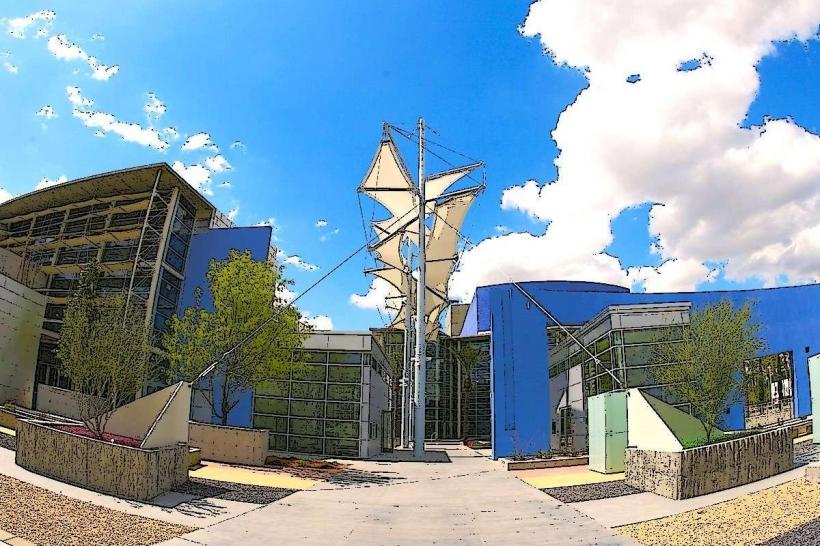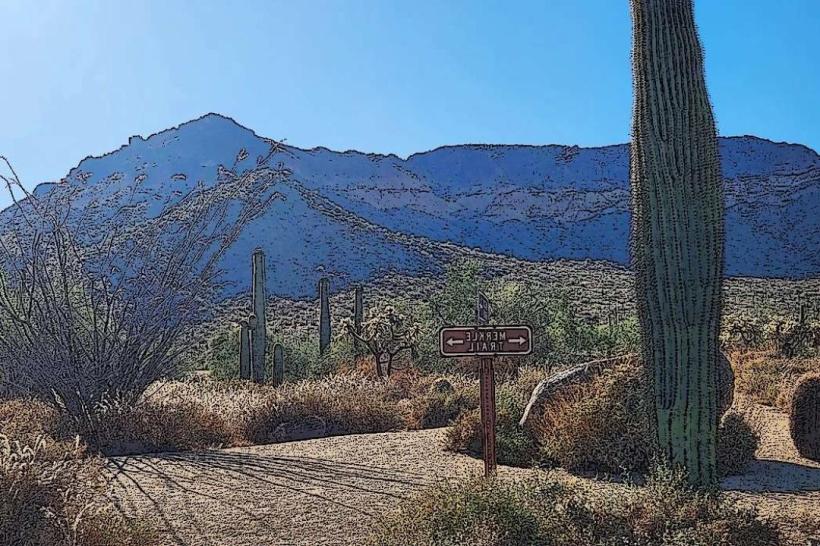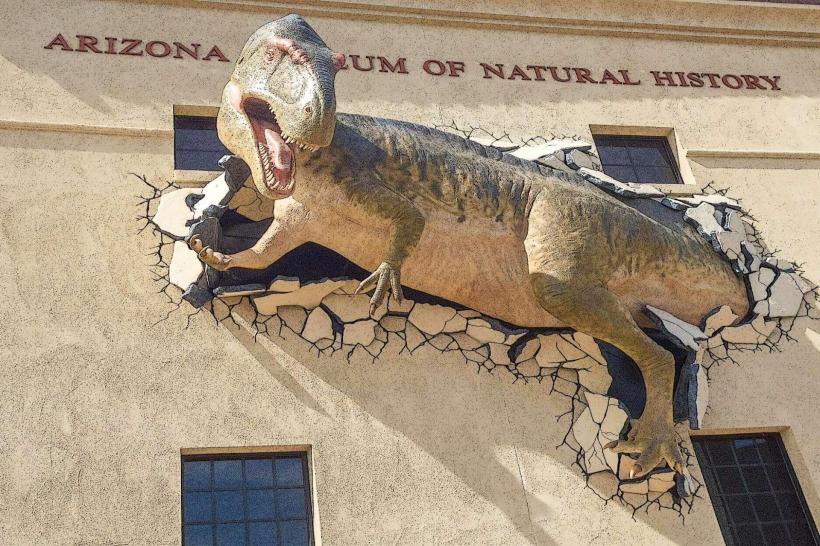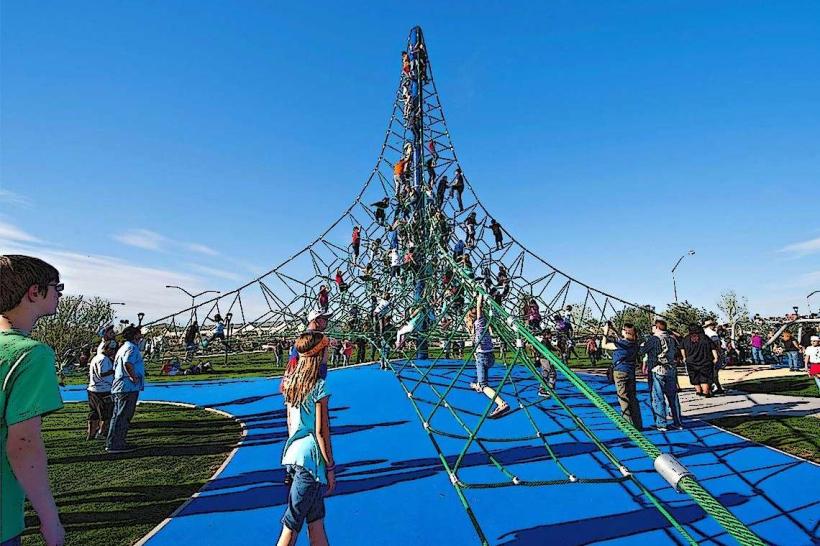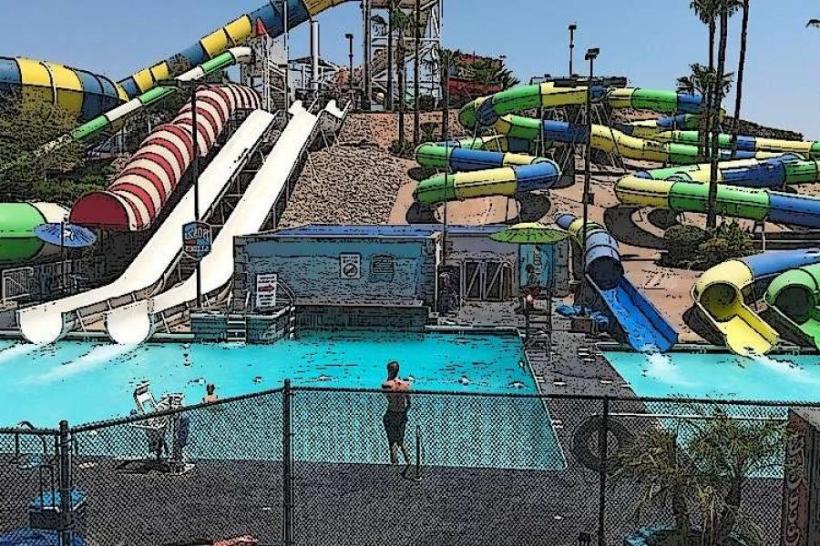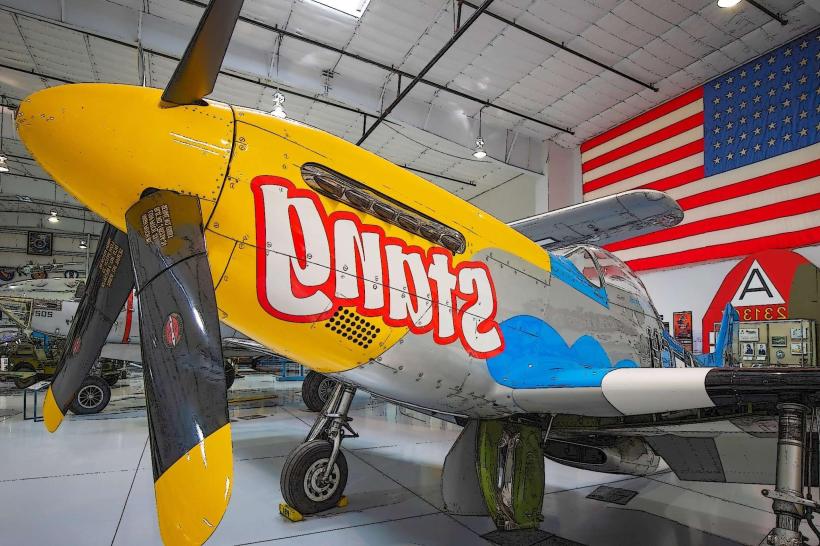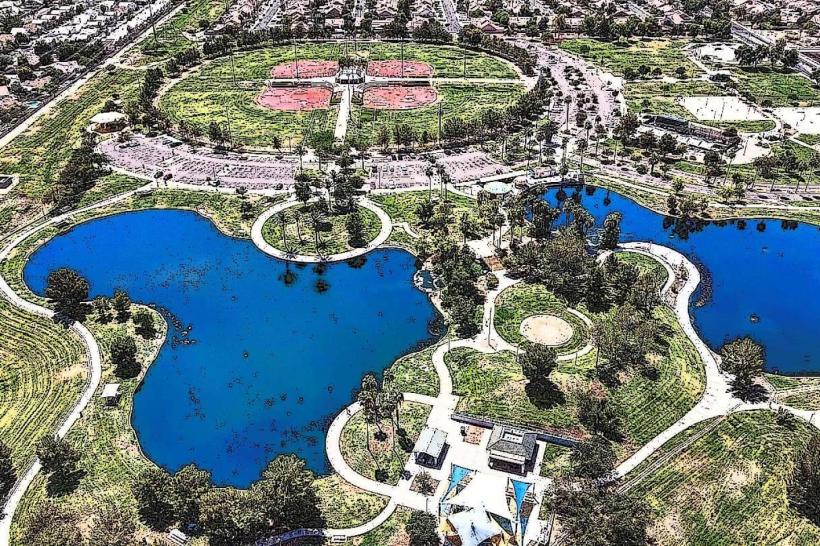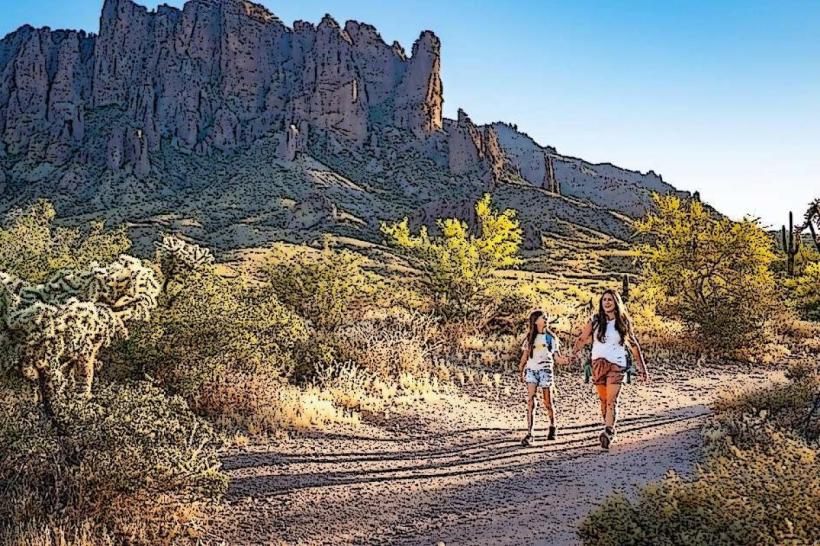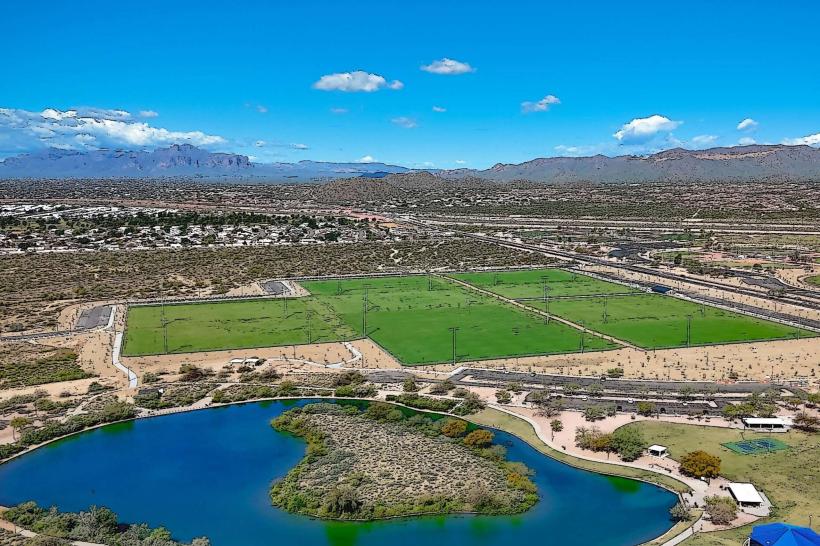Information
Landmark: Mesa Grande Cultural ParkCity: Mesa
Country: USA Arizona
Continent: North America
Mesa Grande Cultural Park, Mesa, USA Arizona, North America
Mesa Grande Cultural Park is an archaeological site located in Mesa, Arizona, USA. It preserves a large ancestral Puebloan platform mound and associated structures.
Visual Characteristics
The primary structure is a large, rectangular platform mound constructed from earth and stone. Its current elevation is approximately 10 meters above the surrounding ground level. The mound's surface is largely unexcavated, revealing its earthen composition with visible stone retaining walls in some sections. The site is situated within a desert environment characterized by low-lying scrub vegetation and arid soil.
Location & Access Logistics
Mesa Grande Cultural Park is located at 1001 S. Country Club Drive, Mesa, Arizona. It is approximately 3 kilometers south of downtown Mesa. Access is via Country Club Drive, a paved public road. A dedicated parking lot is available on-site, with capacity for approximately 30 vehicles. Public transportation options include Valley Metro Bus routes that stop within walking distance of the park entrance.
Historical & Ecological Origin
The platform mound was constructed by the ancestral Puebloan people, likely between 1100 and 1350 CE. It served as a central ceremonial and administrative structure for a larger village complex. The site is situated within the Sonoran Desert ecoregion, characterized by a hot, arid climate and specific desert flora and fauna.
Key Highlights & Activities
Visitors can walk around the perimeter of the platform mound. Interpretive signage provides information on the site's history and construction. Educational programs are offered periodically. Observation of the surrounding desert landscape is possible.
Infrastructure & Amenities
Restrooms are available on-site. Limited shade structures are present near the visitor center and parking area. Cell phone signal (4G/5G) is generally available within the park. No food vendors are located within the park; nearest options are in downtown Mesa.
Best Time to Visit
The optimal time for visiting is during the cooler months of October through April. Mid-morning (9:00 AM - 11:00 AM) and late afternoon (3:00 PM - 5:00 PM) offer more comfortable temperatures and favorable lighting for viewing the mound. Summer months (May - September) experience high temperatures exceeding 38 degrees Celsius.
Facts & Legends
The platform mound is one of the largest of its kind in the Phoenix metropolitan area, indicating its significant role in the ancestral Puebloan community. Local oral traditions suggest the mound was a gathering place for important tribal events.
Nearby Landmarks
- Arizona Museum of Natural History (1.5km North)
- Mesa Arts Center (2.0km North)
- Downtown Mesa (3.0km North)
- Usery Mountain Regional Park (12.0km Northeast)

